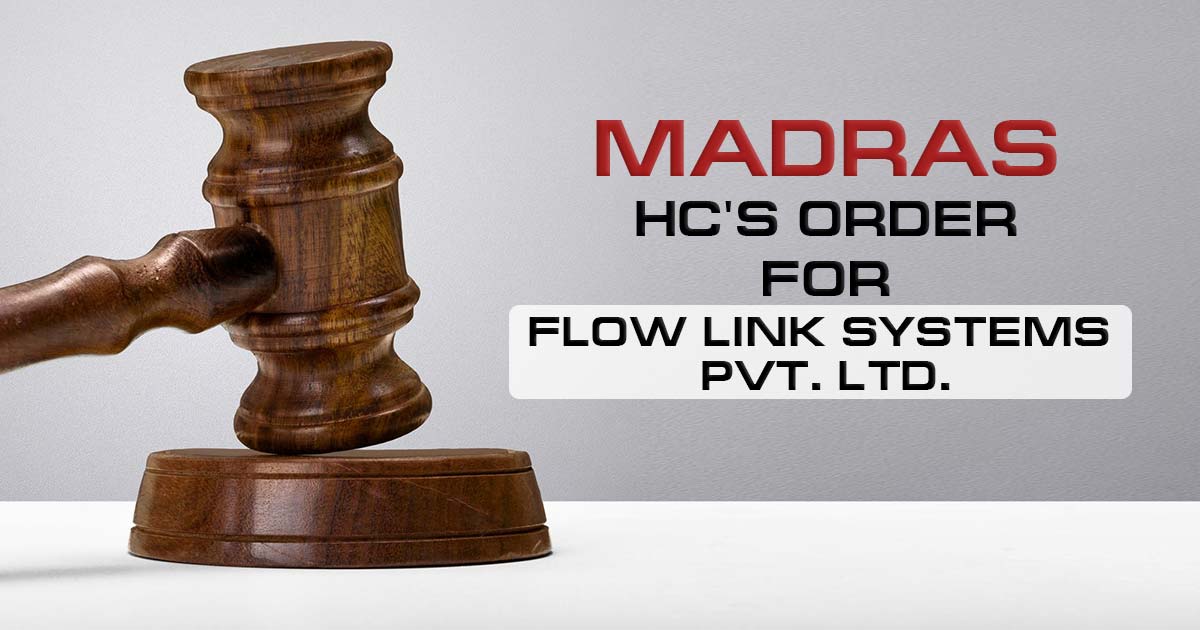
During remanding the matter the Madras High Court ruled that the refund claim needed to be examined and determined established on the documents related to the claiming of the ITC and the export of the product on zero-rated grounds.
The petitioner has incurred the GST refund claims on time and cannot be faulted for the late processing of claims by the department. The bench of Justice Senthilkumar Ramamoorthy noted.
The taxpayer is a manufacturer and exporter of steel casting and industrial valves. It was a registered dealer under the TNVAT Act and the Central Sales Tax Act, of 1956. Concerning its exports, the petitioner contended that Forms W were filed within time and ITC was availed on capital goods from the year 2011 onwards.
The applicant mentioned that its exports are zero-rated and hence it is qualified for a refund of the unused ITC. The applicant contended that the office of the Accountant General had sought objections concerning the refund of unused ITC on capital goods.
On October 20, 2011, the Commissioner of Commercial Taxes issued Circular No.22/2011, rendering the assessing heads not to process and refund claims concerning the unused ITC on capital goods. In such cases, it is mentioned that the refund was not incurred.
Hence, Circular No.12 of 2018 on June 21, 2018 (Circular No.12) was issued via the Commissioner of Commercial Taxes, specifying that the taxpayer is qualified for the refund of the unused ITC on capital goods under certain provisions of the TNVAT Act.
Hence on August 4, 2020, the petitioner requested a refund, and the council rejected the request. The applicant argued that the claim was not settled because of Circular No. 22. After the Commissioner of Commercial Taxes explained that under Circular No. 12 refunds can be made, the assessing officer was in a place to process refund claims.
Thus, the rejection of the refund claims calls for interference. The rejection on the foundation that the period of limitation under Section 27 of the TNVAT Act had lapsed is unsustainable.
Read Also: Easy to Claim & Check Status of Income Tax Refund Online
The applicant argued that the refund claim needed to be incurred within 180 days from the date of the zero-rated sale by the exporter. He refers to sub-section (3) of Section 18 of the TNVAT Act in this connection. As the applicant does not claim a refund in the particular duration, the additional Government Pleader furnishes that the applicant does not qualify for the refund.
Moreover, through drawing reference to Section 27 of the TNVAT Act, he furnishes that the 6-year duration mentioned in it is the outer limit for amending the assessment. No interference warranted with the impugned order is there.
“The petitioner has made the refund claims on time and cannot be faulted for the delayed processing of such claims by the respondent. If such claims were not processed on account of Circular No. 22, which was superseded by Circular No. 12, at a minimum, the limitation period should be reckoned from the date of such Circular. For such reason, the impugned order is unsustainable,” the court stated.
The order is been quashed by the court and remanded the case for reconsideration of the claim of the refund of the applicant on its merits. It was clear that the Assessing Officer(AO) did not proceed with the issue of the limitation.
The refund claim will be deemed and disposed of in the highest period of the two months post furnishing the reasonable chance to the applicant.
| Case Title | Flow Link Systems Pvt. Ltd Vs The Assistant Commissioner (ST)(FAC) |
| Case Number | Writ Petition No.27842 of 2022 |
| Date | 01.02.2024 |
| for the Petitioner | Mr.B.Raveendran |
| for Respondent | Mr.T.N.C.Kaushik |
| Madras High Court | Read Order |









